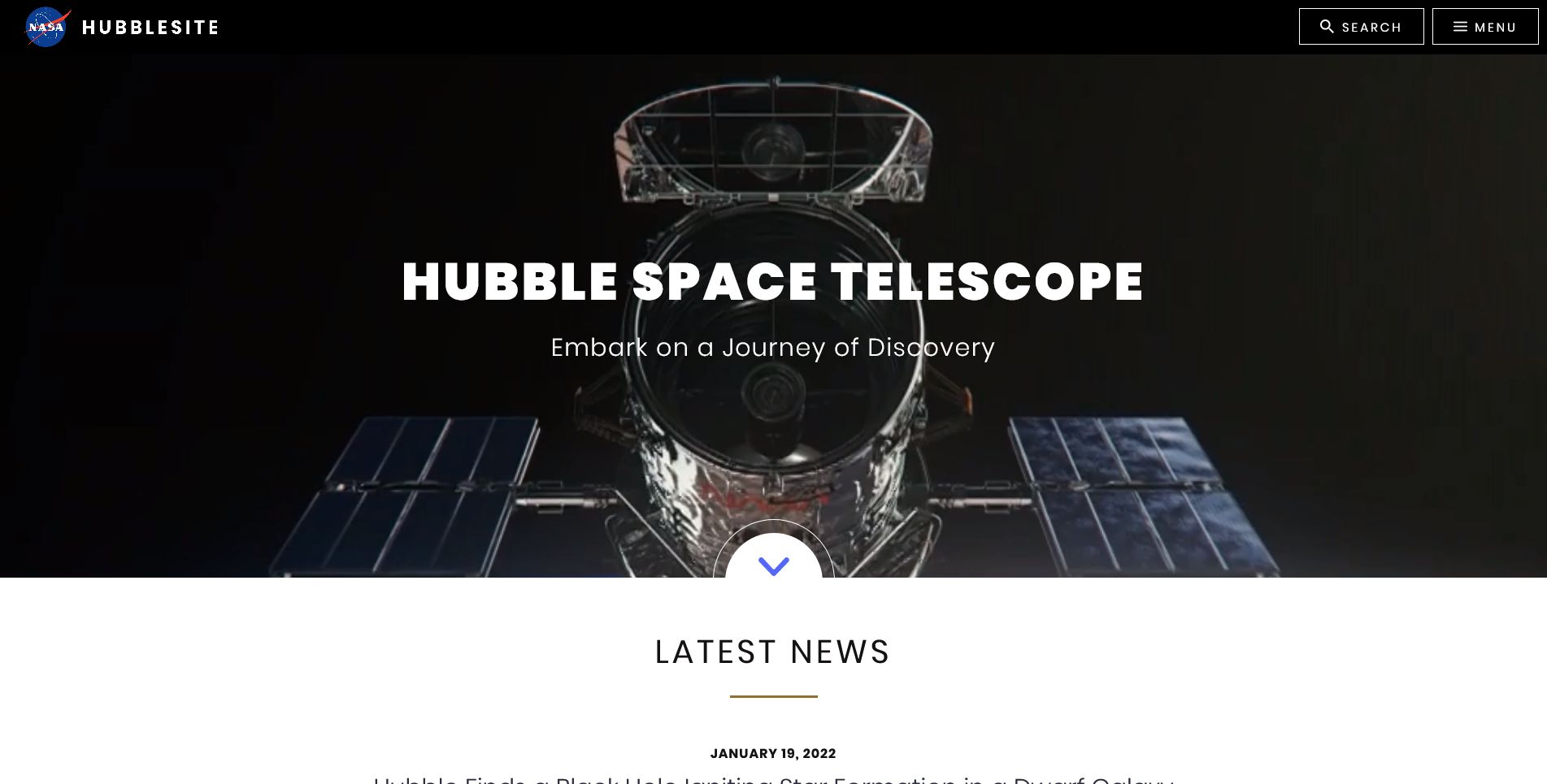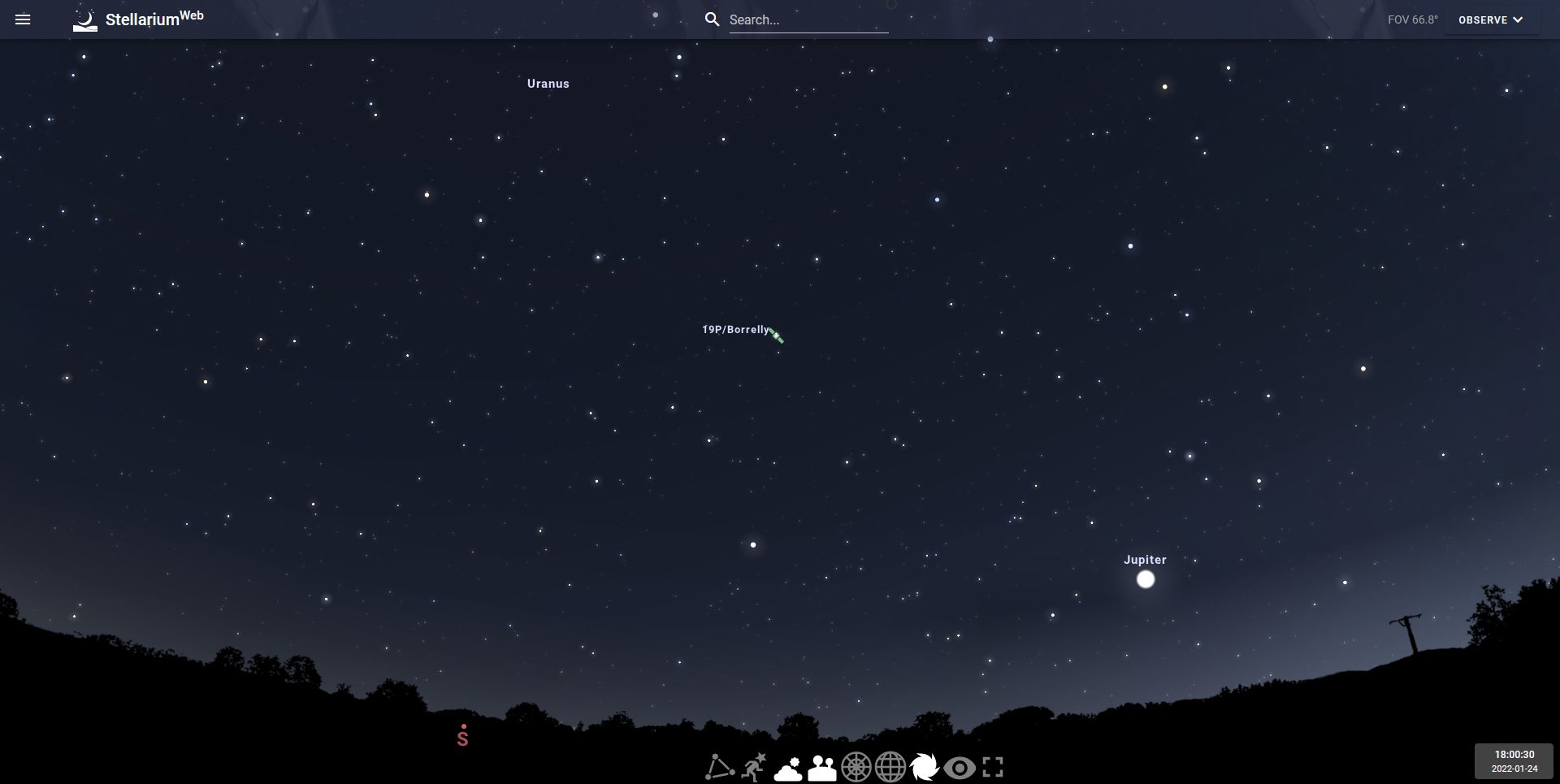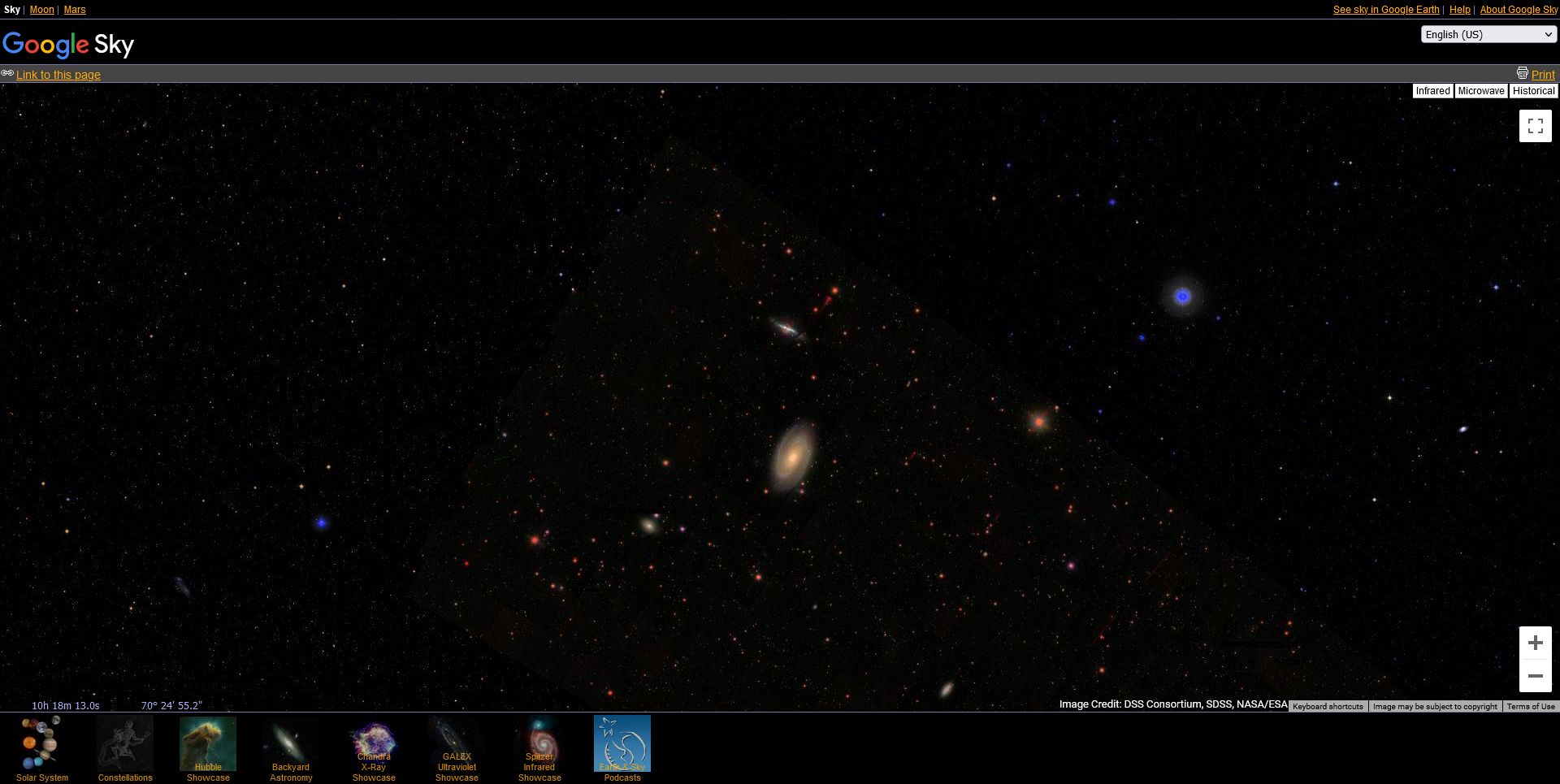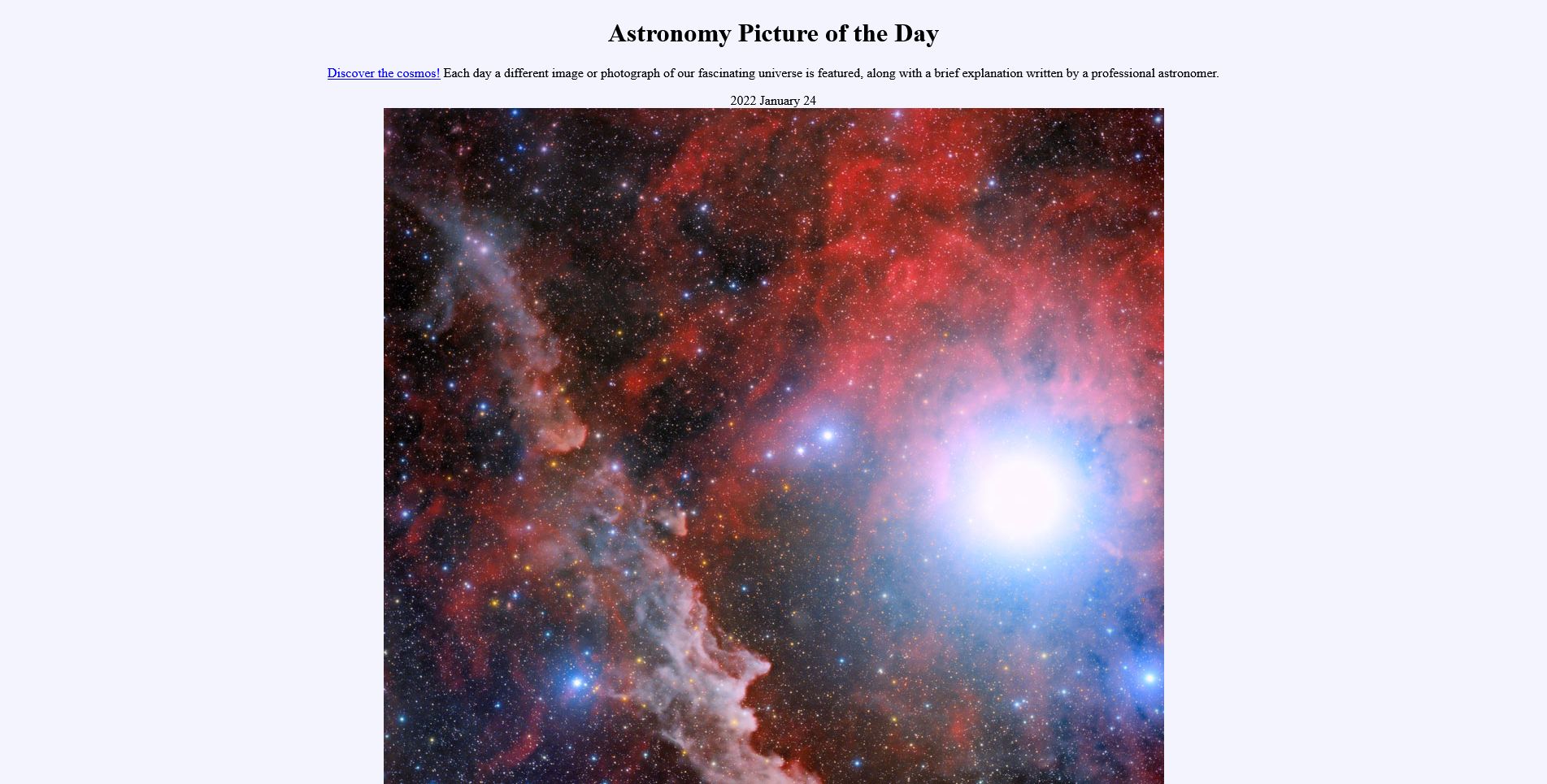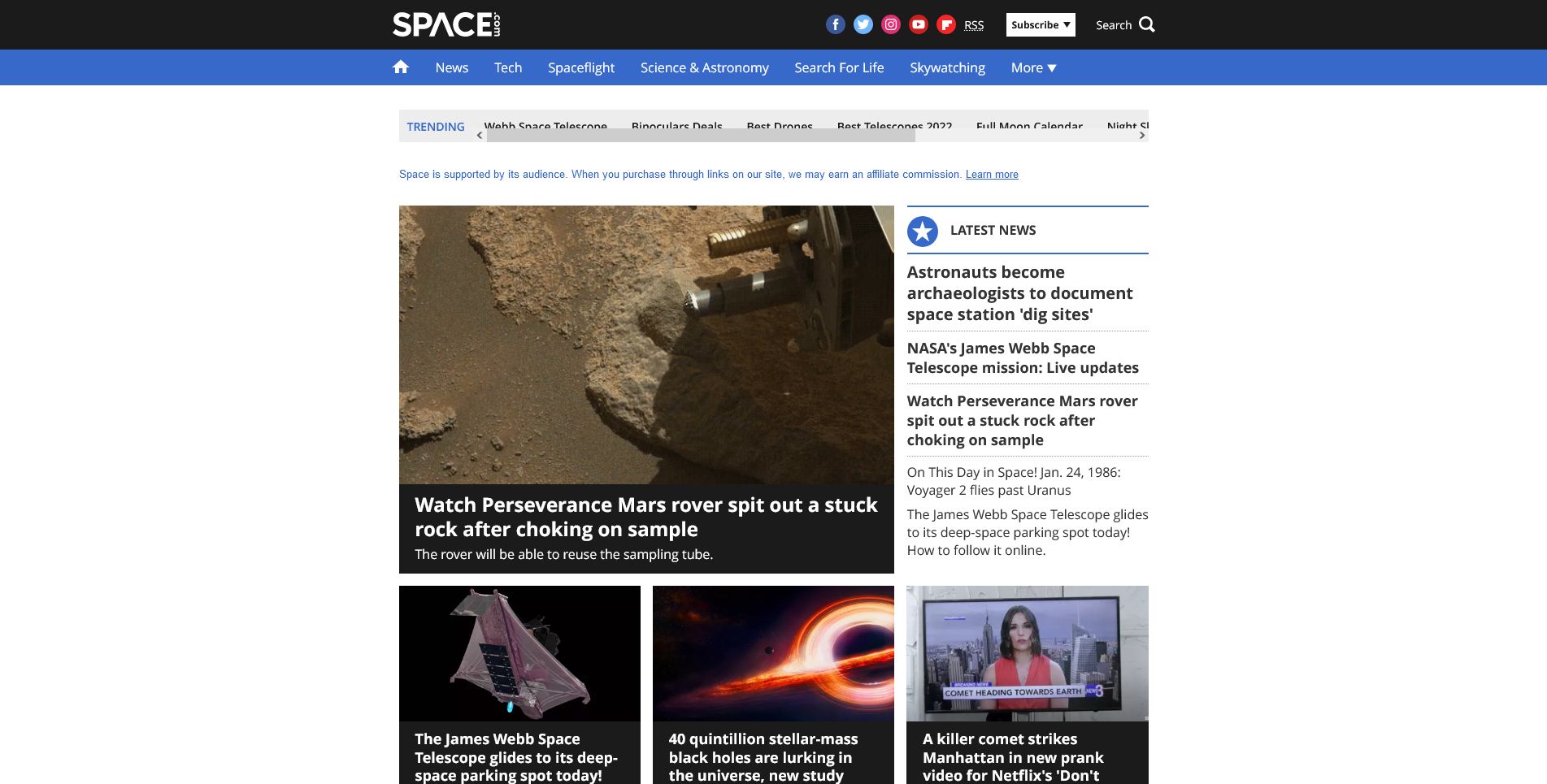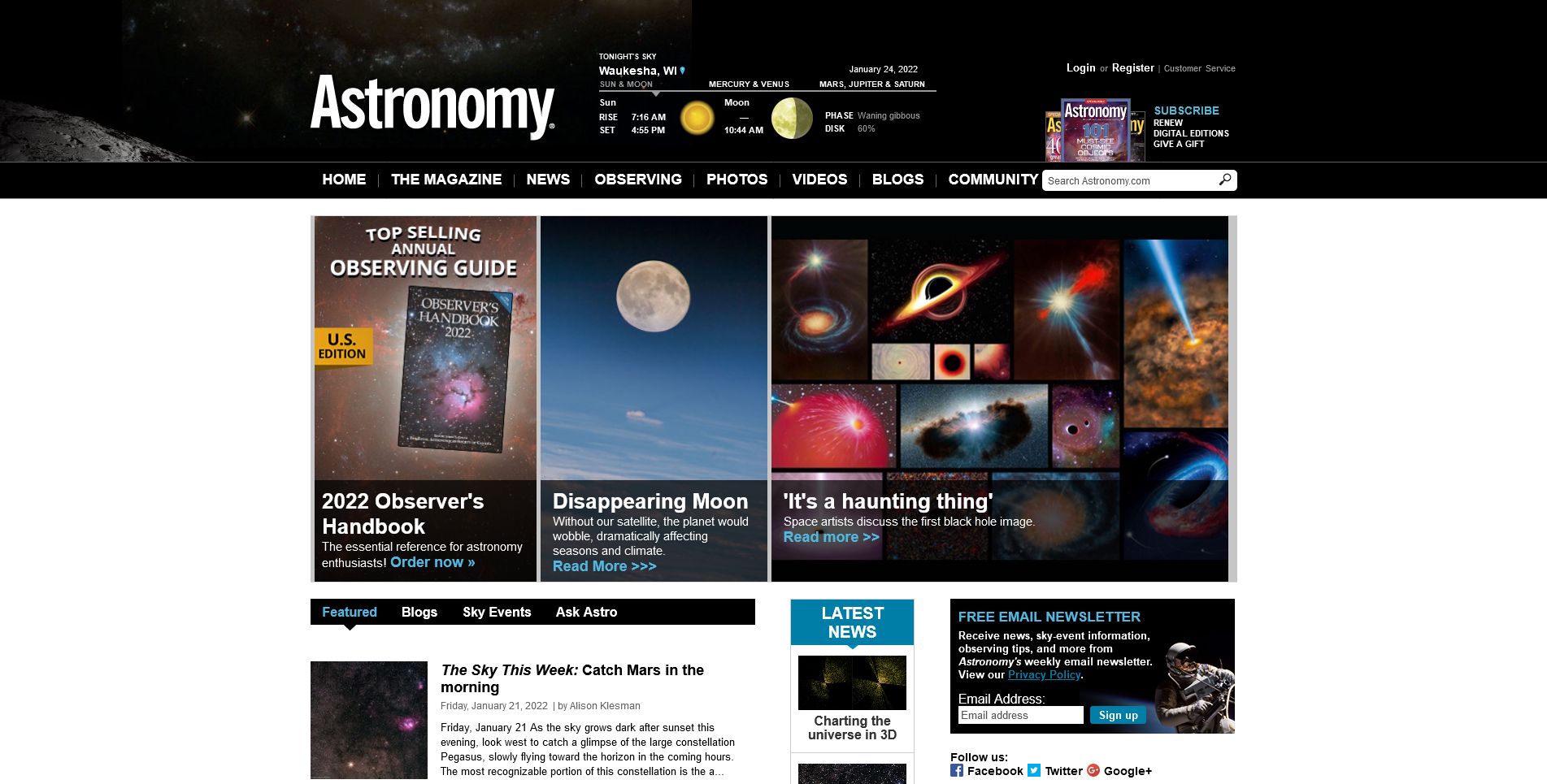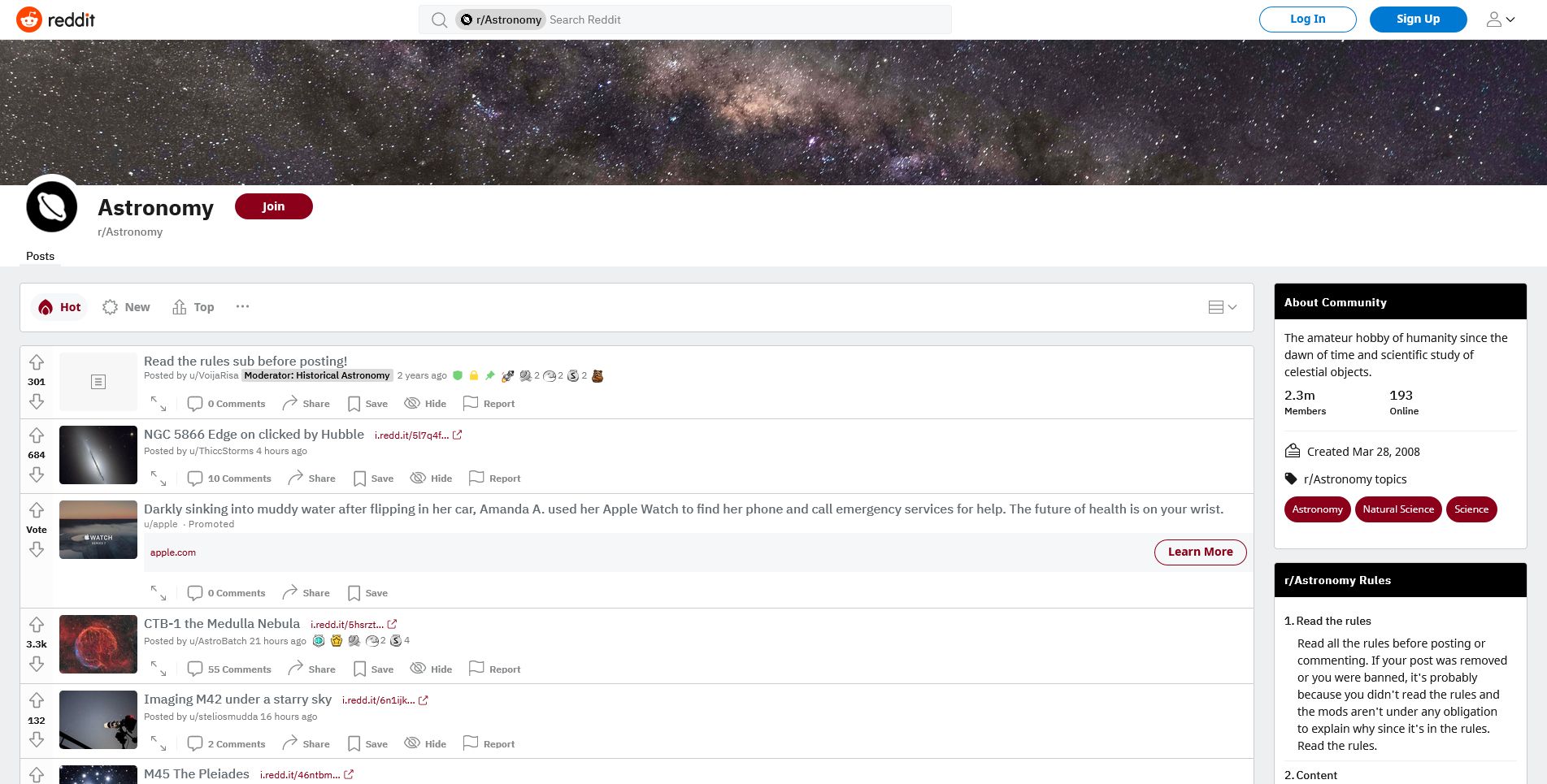Very few of us are ever likely to make it into outer space. Though future generations may enjoy space tourism, we'll need to make do with looking up at the stars and planets from the big blue ball we call Earth.
But even getting access to a telescope powerful enough to see anything in detail can be expensive. Thankfully, there are plenty of astronomy websites dedicated to the world outside our own, where you can track comets, see the stars, and read about the latest scientific discoveries.
1. HubbleSite
In 1990, the space shuttle Discovery released the Hubble Space Telescope into space. It provides images from deep space, revealing incredible properties about space and time.
On HubbleSite, you can stay updated on the latest Hubble news as it discovers black holes, dying stars, galaxies, and more. You can even view astounding images and videos of these discoveries, which truly make you appreciate the scale and wonder of space.
Not only that, but you can see what the Hubble is looking at in real time.
2. Stellarium Web
Stellarium Web is a planetarium in your browser. Click and drag your mouse to move your position and explore the stars and planets in the sky. Select one to find out more about it, like its name, magnitude, distance, and visibility.
Click the date and time in the bottom-right and you can change the sky to whenever you wish; so you can see how the view changes at moonlight, daylight, twilight, and so on.
There's even a handy observation logbook, where you can record your observations to look back and reminisce or share with friends.
3. Google Sky
You can use Google Earth in a browser, but do you know about Google Sky? Google Sky presents several different ways to view the universe, creating a mosaic of images from the Sloan Digital Sky Survey, the Digitized Sky Survey, and the Hubble Space Telescope.
Along the bottom are thumbnail images where you can explore planets, constellations, and other highlights from the Hubble Space Telescope.
You can also apply three layers: infrared (a view of the sky from the Infrared Astronomical Satellite), microwave (the universe 380,000 years after the big bang, from NASA's Wilkinson Microwave Anisotropy Probe), and historical (as drawn by Giovanni Maria Cassini, printed in 1792).
4. Astronomy Picture of the Day
An easy and digestible way to discover the cosmos is through Astronomy Picture of the Day. As the name suggests, every 24 hours the website features a new and incredible image from space. Alongside the image is an explanation of what you're looking at and where it came from.
If you miss a day, you can browse through the full archive—that's all the way back to 1995. That's enough space to keep you busy for a long time.
5. ScienceDaily
Our understanding of space is constantly changing, as scientists discover new black holes, destructive matters, planets, molecules, and more.
One great way to keep on top of these discoveries is through ScienceDaily, a website that publishes the latest research news.
Every news piece is attributed, summarized, and explained in detail. A couple of new stories publish every day, so you'll always learn something interesting.
6. Space.com
The suitably named Space.com is a great source of news and information about space exploration, innovation, and astronomy. It's designed to be an accessible resource; to celebrate space in a way that everyone can understand.
The site launched in 1999 and has gone through various changes and ownership since then, but remains a valuable resource.
Space.com also covers space in the media, and branches into sci-fi, but you can filter and only view the scientific astronomy information if desired.
7. Sky & Telescope
Sky & Telescope is a magazine that has existed in some form since 1941, targeted at "astronerds". While it still publishes in print, Sky & Telescope is also an excellent astronomy website packed full of news, events, observing guides, podcasts, and tools.
Some of the great features worth checking out are "This Week's Sky at a Glance", which shows you where the stars and planets align, along with the interactive star chart where you can see the sky from any location at any time.
8. Astronomy Magazine
Astronomy Magazine publishes daily news to keep you in the loop about the latest scientific discoveries.
It's also packed full of photos of space, which you can spend hours getting lost in. The site also hosts some interesting video series, which cover astronomical concepts in a fun and engaging way.
If you want to start on your own astronomy journey, Astronomy Magazine also has some handy recommendations on what kit you need to buy.
9. The Planetary Society
The Planetary Society was founded in 1980 by Carl Sagan, Louis Friedman, and Bruce Murray. The trio saw that the public were hugely interested in space, but government investment into NASA was falling.
Now, The Planetary Society is the world's largest non-profit space organization, with a vision to empower the world's citizens to advance space science and exploration.
On the website you can find out about its mission, but also explore a variety of space topics, listen to the weekly podcast, watch educational videos, and browse incredible photos of space.
10. r/Astronomy
There's a Reddit community for everything, and astronomy is no different. This subreddit has over two million members and it's a perfect place to talk to like-minded people.
Many of the posts on this subreddit are fabulous space photos, but you can also chat with others about their exploration equipment, the latest scientific discoveries, and help people identify what they've photographed.
Explore Space in the Palm of Your Hand
These are some of the best websites for astronomy. Whether you're a night sky newbie or expert, there's something for everyone.
There are also plenty of great astronomy apps that you can download to your smartphone, so you can transform your phone into a mobile observatory.


